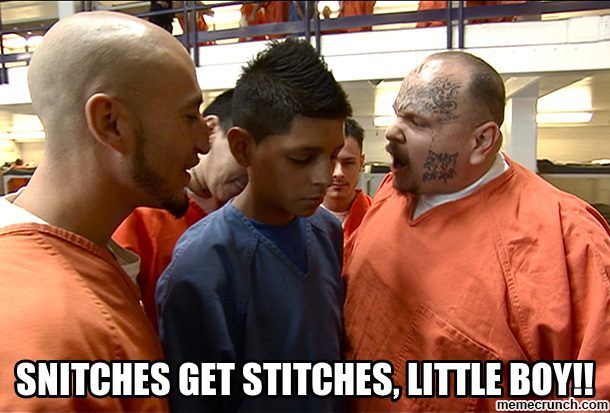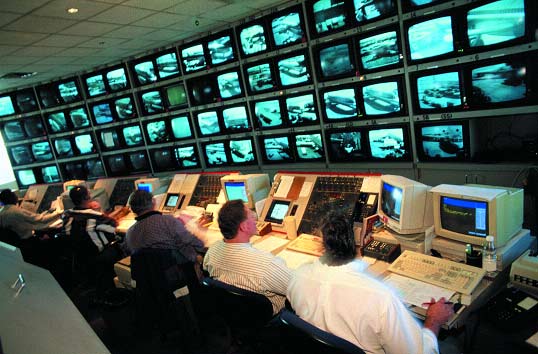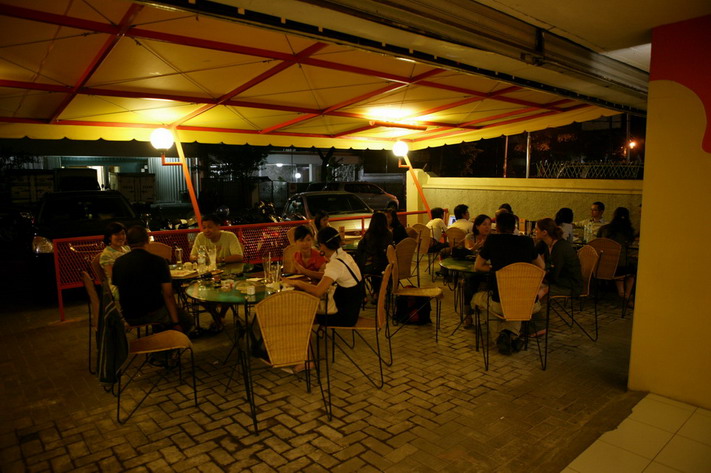The Planet of Snitches

What a strange, uneasy time it is to live in …
We re going to talk ab an unpleasant corollary of the “New Normal”: it is a field day for nosey neighbors, busybodies and snitches …
…One ugly result is that snitching on businesses and neighbors has become a national pastime thanks in large part to these two segments of the country.
Everyone has by now likely read or heard about the salon owner in Texas who was jailed for trying to feed her children.
And many watched in horror as the cameras showed a mom being led away in handcuffs for the horrible “crime” of taking her children to the park.
It is an era of “Everybody’s business is my business”, an era of “Political Correctness” which rewards nosiness and victoriously punishes those considered to have transgressed some rule, spoken or otherwise.

In short, it is an era of the snitch. See something you don’t like? Highlight it as a gross crime on social media. Blow the whistle to an employer. Get Big Government, always eager to flex its muscles and extend more control, onto the case. Be a snitch, bitch. Big times await you ahead.

Or maybe not … Stick your nose where it’s not wanted once too often, spy on something that’s none of your business, tattle-tale to the authorities when you don’t approve … and pay the price:

Ok Ok OK! Start at the beginning, just in case you did not resonate with the full significance of “snitch”. It is not a compliment:
snitch
verb
US
/snɪtʃ/ UK
/snɪtʃ/
snitch verb (TELL SECRETLY)
[ I ] informal disapproving
to secretly tell someone in authority that someone else has done something bad, often in order to cause trouble:
She thought I’d snitched on her.
UK He snitched to my boss that I’d been making long-distance calls at work!
More examples
- Would you snitch on yourfriend’s partner?
- Eventually a classmatesnitched, and Emma was called to the principal’s office.
- Inmates who snitch on other inmatesrisk being savagely beaten.

Let’s take a “FER-INSTANCE”. Let’s say you are a stolid, hard-working, law-abiding citizen. One day, you spot someone committing a crime, or maybe just a simple prank, like spray-painting a nice white wall or arguing loudly with someone else in the street, while holding a tire iron that could be used as a weapon. Do you report it? If you do so you become part of the drama, like it or not. Will the police protect you from “payback” [revenge]? Do you want to live in a world where someone you report might threaten your children, attempt to destroy your business or frame you for a serious crime? In short, do you want to get involved?
Americans used to take pride in their privacy, pointing to Communist dictatorships as examples of tyranny where a citizen is never left alone. Now we live in an era of electronic surveillance, 24 / 7, in private as well as government hands. How that has changed:

SNITCH CULTURE
HOW CITIZENS ARE TURNED INTO THE EYES AND EARS OF THE STATE
INTRODUCTION
LIVING IN THE SURVEILLANCE SOCIETY
As American enters the New Millennium, this country is in the grip of a government-created surveillance system which permeates every aspect of our lives. The economy is booming and things couldn¹t be better for the vast majority of citizens. Serious crime is at a 30-year low, with murder and other violent felonies dropping in every region of the nation. Minorities are earning more than ever before, and the schools have never been safer. And yet, despite this good news, large segments of the population live in fear – a fear created and exploited by opportunistic politicians and power-hungry law enforcement officials to justify the most sophisticated police state ever created.
And at the heart of this nightmare is the snitch, the government’s weapon of choice against criminals and law-abiding citizens alike. People gather incriminating information on us even before we¹re born. Pregnant women are routinely tested to see if they¹ve exposed their fetuses to alcohol or illegal drugs, with doctors reporting “drug affected” babies to social service and law enforcement agencies.
If we enroll in the public schools, we are spied on by other students, our teachers, and our counselors. Many schools provide anonymous telephone tip lines for students to squeal on their classmates. A growing number of school administrators are paying for incriminating information. Teachers and counselors are encouraged to report students with “anti-social tendencies” to the police. Reports of typical juvenile schoolyard behavior now result in suspensions, expulsions and arrests.
College campuses are riddled with informants. Politically active teachers are monitored by students who oppose their views. Student political organizations are infiltrated by undercover operatives gathering information on controversial campus speakers and upcoming demonstrations. Foreign students are targeted for surveillance, especially Muslims of Arab ethnicity.
Informants track us after we graduate and enter the workforce. Many potential employers run background checks on job applicants, asking friends and neighbors about their private lives. Some bosses hire undercover agents who pose as workers and spy on everyone in the company, reporting on everything from suspected thieves to employees with poor morale. If we own a business, the government might send over fake customers to see if they can trick us into breaking civil rights laws. These so-called “testers” report our reactions to federal officials who can assess fines or even throw us in jail.
Our neighbors are encouraged to spy on us. If our children cry, they report us to social workers for abuse. If we have a large number of visitors, they call the police and accuse us of dealing drugs. If we drive a new car, they call the Internal Revenue Service and say we’re not paying our taxes.
Family members routinely turn each other in to the police, especially for illegal drug use. Encouraged by government snitch programs, children rat on their parents, parents squeal on their kids, and children report their siblings to the authorities. Wives and husbands turn on each other in divorce proceedings, triggering criminal investigations by accusing their former mates of everything from domestic violence to child abuse to hiding their assets.
Unconventional political and religious movements are also infiltrated by snitches. Law enforcement agencies and private, politically-oriented advocacy groups spy on liberal and conservative organizations alike, along with tiny churches and obscure religious sects. No group is too small or inconsequential to escape the prying eye of the government or its agents.
Discussions with doctors and lawyers are no longer confidential. Government regulations require doctors to report patients with HIV and other contagious diseases to health authorities. Medicare recipients who suspect their doctors are padding their bills are encouraged to report them to Washington bureaucrats. Lawyers have gone to jail for not telling the feds which clients are paying with cash.
The intrusions don’t even stop when we die. Government agencies routinely ask doctors if drugs, both legal and illegal, contributed to the death. Physicians must report whether their deceased patients smoked cigarettes or drank alcohol. Passengers who die in car crashes are tested for alcohol, with the results transmitted to transportation officials for their reports on alcohol-related traffic fatalities. Police use the results of such tests to justify their own brutality, arguing that unarmed people they kill were drunk or stoned.
Obeying the law is no protection against informants. Snitches frequently set people up, tricking them into breaking the law. Or they simply lie, making up stories and swearing to events that never happened. Criminals routinely perjure themselves in exchange for special treatment, sending innocent people to jail and even Death Row. Many people have lost their jobs, been thrown out of their homes, gone to jail – even lost their lives – because of lies told by informants.
We’re so used to being tracked that we don¹t even notice how often we’re being urged to report our friends, neighbors, family members and complete strangers to the authorities. A billboard in Harlem asks citizens to join “Gunbusters Anonymous” and report “illegal guns” to the New York Police Department. Neighborhood “crime watch” programs send thousands of people into the streets every night to look for “suspicious activity.” Newspapers across the country publish weekly “Crime Stopper” stories, running descriptions and photographs of people wanted by law enforcement authorities. Public service announcements on late night television urge neighbors to “take a bite out of crime” by watching each other. Police officers visit the public schools, telling children to report their friends and parents for suspected drug use. Wanted posters in post officers are so common we look right past them.
Snitching has become entertainment, a growing staple of network and cable TV channels. America’s Most Wanted serves up a half-dozen new suspects every week, using hokey crime re-creations to make us pick up the phone and report anyone who even resembles the actors and actress parading across the screen. Tabloid programs such as The Jerry Springer Show use informants to shame their guests, exposing hidden love affairs and embarrassing personal faults for our amusement. Cheating husbands and two-timing wives are physically attacked on stage when their darkest secrets are revealed by vengeful ex-lovers, the studio audience roaring its approval like the Coliseum crowds of ancient Rome.
More recently, “reality-based” TV shows such as Survivor and Big Brother offer up round-the-clock surveillance for our amusement. The constant monitoring is said to reveal the true character of the people in stressful situation. Viewers vote on who they don¹t like, punishing unpopular participants with digital banishment.
But the modern surveillance society is not a passing form of entertainment. And its consequences are far more severe than any passing humiliation. Our most personal information is now being fed directly into a massive system of interlocking computer databases maintained by government agencies, law enforcement officials, for-profit businesses and private intelligence networks. Our school, employment, medical, psychiatric, banking, credit, automobile, housing, TV viewing, computer use and gun ownership records are all stored electronically by people we¹ve never met, accessible at the stroke of a computer key.
And now the government is adding our DNA, the unique genetic code found in our every cell, to their files. All 50 states have laws requiring that DNA samples be taken from convicted criminals and sent to the National Offender Database maintained by the FBI. By May 2000, about 280,000 samples had been placed online and another 750,000 were still waiting to be processed. Some politicians are already pushing for DNA samples to be taken from anyone merely arrested for a crime. How long will it be before everyone¹s DNA is simply tested at birth? And what will happen if a lab researcher tells the government our genes say we’re bad?
Such tips can trigger a broad range of responses by federal, state and local authorities, from home visits by child care and mental health specialists to deadly raids by heavily-armed SWAT units. Governments have spent billions of dollars in recent years militarizing local police departments across the country, and creating special federal units with overwhelming firepower. They are all ready and waiting for an informant to send them on their next mission. The result of all this snitching has been boiled down to a simple bumper sticker that can be seen on cars and trucks in all 50 state: “I love my country, but fear my government.”
The Snitch Culture did not come about by accident. It was deliberately created by Democrats and Republicans alike, working with federal, state and local law enforcement officials to build a nationwide intelligence-gathering network which is impossible to escape. This surveillance system did not spring to life overnight. It was assembled in pieces over the past century in reaction to one manufactured threat to the American way of life after another, each requiring new laws, new law enforcement agencies, and new informants to enforce. Our political and law enforcement leaders repeatedly seize on bizarre but isolated incidents to create the image of a country under attack from all sides. The threats have ranged over the years from anarchists to marijuana to Communists to heroin to Muslims to methamphetamine to white supremacists, but in each case the government¹s response has been the same – a new domestic war. The War on Crime. The War on Drugs. The War on Terrorism. The War on Youth Violence.
The establishment press plays along with the charade, creating a parallel universe where death and destruction waits around every corner. With the advent of satellite trucks and 24-hour news channels, the result is a constant media bombardment of ever greater dangers, all requiring us to spy on our neighbors, friends and family members.
President Bill Clinton exploited the 1995 Oklahoma City bombing to channel hundreds of millions of dollars to the Federal Bureau of Investigation to greatly expand its domestic political surveillance programs. The FBI opened a new counter-terrorism center and established a series of multi-jurisdictional task forces, working with state and local authorities to gather intelligence on suspected dissidents in their regions. The far right neo-Patriot movement was the original target but, by the end of the decade, the government had shifted its focus to the left-leaning anti-globalization movement that debuted at the World Trade Organization meeting in Seattle.
The Columbine High School massacre became an excuse for America¹s public school students, teachers, counselors and administrators to turn on any child who didn’t fit in. Within hours of the shootings, the press was running in-depth reports about homicidal teenagers raised on a corrosive diet of morbid goth music, violent video games and blood-drenched movies – an entire generation of young people with no regard for human life. Clinton went on national television and urged students across the country to report any classmates who seemed anti-social. Hundreds if not thousands of students were suspended, expelled and even arrested for typical adolescent behavior, or for bringing something as innocuous as nail clippers to class.
The message is clear: Americans must spy on each other, reporting all signs of suspicious activity or aberrant behavior to the authorities. And if the people won’t tattle, the government will monitor their every waking moment anyway. Video cameras line the freeways. Bank transactions are monitored. Even our computers are being used against us, collecting and sending personal information through private companies to federal law enforcement agencies.
The ultimate symbol of this power is Echelon, a massive system of space age listening devices and supercomputers maintained by the U.S. government¹s top secret National Security Agency. Created over the course of the Cold War, Echelon is an information vacuum cleaner which can monitor virtually every phone call, e-mail, fax, radio transmission, television broadcast, and other form of electronic communication in the world today. Legal concepts such as the right to privacy are a joke to this computer-driving monitoring system which can eavesdrop on practically everyone at the same time.
The result is a society driven by manufactured mass paranoia, where personal betrayal is seen as a virtue instead of the lowest form of human behavior. And as the 21st Century begins to unfold, this perverse version of reality is being exported around the world. Seamless global surveillance is the ultimate goal. All it takes is a tip from a snitch to make you a target.

It’s quite a decision to make, often spur-of-the-moment.

What ever happened to “Mind Your Own Business”? Do you not feel annoyed when others tell you how to live?

George Will once said, “Civilization depends on, and civility often requires, the willingness to say, “What you are doing is none of my business” and “What I am doing is none of your business.”
Governments of course would not agree with that. Governments like control, more control, total control. And many citizens would like to cede their privacy, individuality and freedom to do as they please to government control. It’s a sign of the times.

Hank Williams tells the story nicely …

On the other hand, we’d be more than happy to have you mind our business, at Ya Udah Bistro, now open in a New Normal protocol, in both Menteng and Serpong facilities, with great Euro-Asian food and fine drink. Super-hygiene, masks, gloves and sterilization of everything except the patrons …




